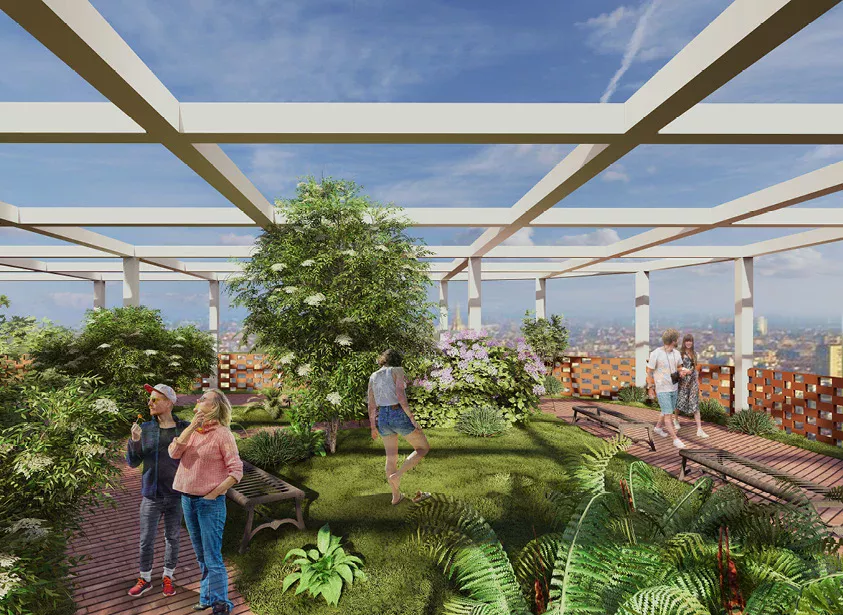Urban Designer: what they do and how to become one

Would you like to work as an Urban Designer? Discover the field and entrust Domus Academy with your education.

Envisioning the contemporary city, safeguarding territories, and encouraging social and environmental sustainability – the Urban Designer plays a pivotal role in creating healthy, regenerative urban spaces and reinterpreting the shifting contexts of our urban environments. Through the synergy of architecture, landscape design, social and spatial urban practices, and urban planning, this professional figure aims to shape and improve not just the physical aspects of cities but also the quality of life for communities and ensuring habitable environments for other species. Urban Designers focus on integrating ecological balance, social equity, public placemaking, and principles of shared resources into their work, ensuring cities that are vibrant, sustainable, and inclusive.

Bachelor’s Degree:
Start with your bachelor’s degree in architecture, interior design, environmental sciences, urban planning, or related fields. This provides foundational knowledge in design principles, urban theory, and environmental resonsibilty.
Master’s Degree:
A Master’s degree in Urban Design, like the programme at Domus Academy Milano, provide specialized coursework combining theory with practical applications emphasizing cultural, ecological, and social responsibility. Domus Academy, located in Milan, leverages its geographic position in one of the most fascinating cities in the world. Rich in history, culture, and modernity, Milan is renowned for its avant-garde stance and multidisciplinary, critical, responsible and creative approach.
- Environmental Literacy: Deepen your understanding of ecological systems, sustainable design practices, and cultural issues.
- Community Engagement: Cultivate skills in engaging with diverse communities to address social inequalities and promote inclusive and holistic urban developments.
- Design and Visualisation: Gain proficiency in design software (e.g., AutoCAD, Rhino, SketchUp, Rendering platforms, AI, GIS) to visualise curative urban solutions.
- Systems Thinking: Develop the ability to analyze urban spaces holistically, considering social, economic, and environmental factors.
- Communication: Enhance your ability to communicate ideas through presentations, models, film, collages, emphasising the core concepts that are driving your designs.
- Internships: Participate in internships with leading architectural and urban design firms, design organizations, or municipal planning departments to gain hands-on experience in urban design.
- Workshops: Engage in design workshops and seminars focused on curative themes to hone your skills and build a diverse portfolio.
- Continuous Learning: Keep up with the latest trends, technologies, and best practices in urban design through workshops, courses, and seminars that focus on sustainability and social equity.
- Networking: Connect with professionals in the field of sustainable and equitable urban design through networks and associations, leveraging Milan’s rich professional community to stay informed about industry developments.
- Showcase Projects: Compile a portfolio of your best work, including projects that highlight your commitment to impactful design practices
- Highlight Diversity: Ensure your portfolio demonstrates a range of skills and experiences, from small-scale community projects to large-scale strategic proposals.
The Urban Designer uses advanced tools for designing and modelling urban spaces. Mapping, computer-aided design software, 3D modelling tools, and GIS (Geographic Information System) software is used to visualize and analyze social, environmental and spatial data, facilitating the creation of vibrant, visually stimulating and community-oriented projects.
Urban Designers have multiple opportunities in both the public and private sectors, guiding projects that shape the form of cities and promote a culture of sustainability and accessibility. They work in design studios, public authorities, and companies specializing in urban regeneration. Collaboration with institutions, involvement in design competitions, and participation in industry events are crucial for shaping the role of the Urban Designer and benefiting urban development.
Urban designers can develop their skills within the Master’s programme in Urban Vision & Architectural Design. This programme supports students in developing relevant creative, intellectual, and technical skills through work in architectural design. Through research, the analysis of landscapes and urban settings, students explore a wide range of design-based strategies, relationships with citizens, and sustainable development methodologies.
Close relationships with leading professionals in architecture and urbanism help students apply innovative strategies to real-world scenarios, focusing on the sustainable development of the urban fabric.
Embarking on a career as an Urban Designer is a journey filled with opportunities to impact our cities positively. By combining education, practical experience, and continuous learning, you can become a pivotal figure in creating sustainable and vibrant urban spaces.
Domus Academy is here to guide you every step of the way, providing the knowledge and tools needed to excel in this dynamic field.





